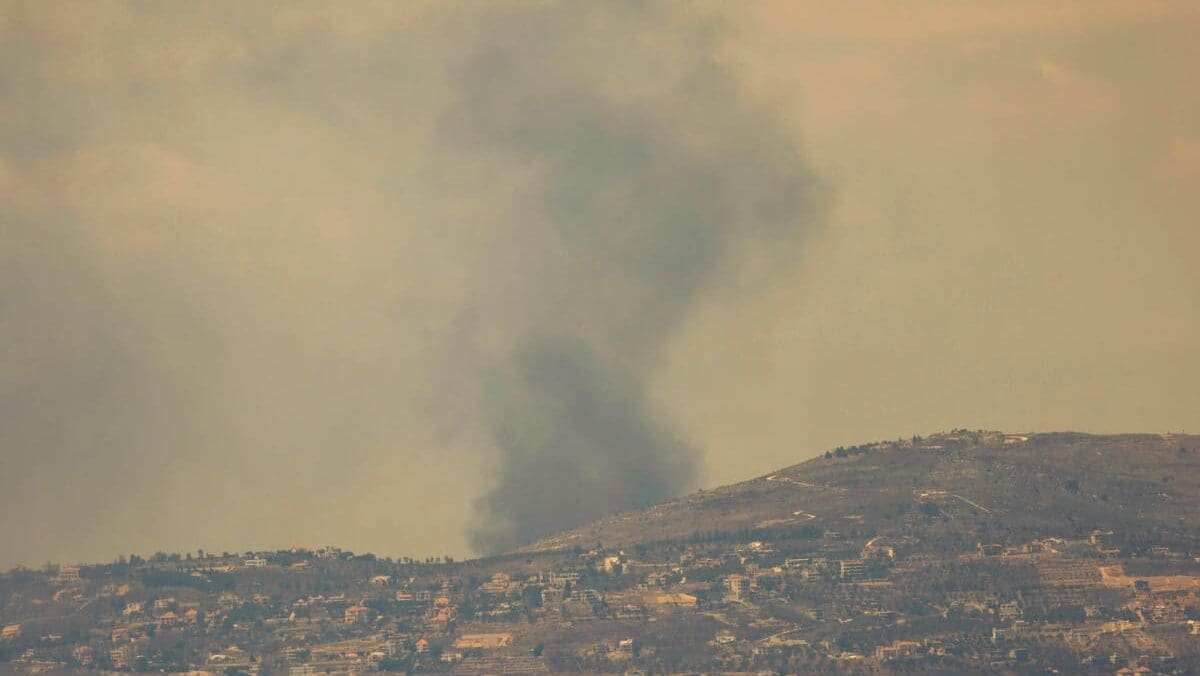
Aftermath of an Israeli strike on Hezbollah targets in Southern Lebanon on Sunday morning, August 4th.
Photo: Jalaa Marey / AFP
EU member states have begun telling their citizens to leave Lebanon “as soon as possible” amid fears of an imminent escalation in hostilities with Israel over the weekend. Iran and its proxies vowed to retaliate against Tel Aviv for the recent assassinations, potentially leading to a wider regional war in the Middle East.
“In a highly volatile security context … we invite [French citizens] to make arrangements now to leave Lebanon as soon as possible,” the French foreign ministry said in an urgent statement on Sunday, August 5th.
The U.S. and the UK were the first to publish similar warnings, with the latter pleading with British citizens to book “any ticket available” to leave the Middle East as soon as possible. They were quickly joined by Canada, Germany, Sweden, the Netherlands, and later Italy, whose Foreign Minister Antonio Tajani urged Italians to “absolutely not travel to the south of the [Lebanon]” and return to Europe with the next available flight.
Leaving the country, however, is getting increasingly difficult as several major airlines suspended their flights to (and therefore also from) Beirut, including Air France and Lufthansa. The situation is made worse by the fact that many desperate native Lebanese are also trying to get out, leading to overcrowding in the single active airport in the country.
Following all the world-wide calls for civilians to leave #Lebanon immediately, also the Lebanese civilians are not taking any risks and trying to flee Lebanon before escalation.
— Elly 🎗️Israel Hamas War Updates (@elly_bar) August 4, 2024
The airport in #Beirut is extra overcrowded today with departures attempts #israel #iran #ww3 pic.twitter.com/IXx8KdIIaJ
People fear war is looming over the region after Iran vowed revenge against Israel for assassinating Hamas leader Ismail Haniyeh in Tehran last week, just hours after eliminating Hezbollah’s most senior military commander with a strike on Beirut as well.
Following the strikes, top Iranian officials met with the representatives of the country’s regional proxies—Lebanon’s Hezbollah, Yemen’s Houthis, Hamas, and Islamic Jihad of Gaza, as well as various Shiite militias from Iraq and Syria—to discuss possible forms of retaliation.
“Iran’s response to the assassination of Martyr Haniyeh will be stronger than before,” former senior Revolutionary Guards Commander Esmail Kosari told state TV on Friday, adding that Tehran will strike without warning and hinting that it can be expected by Wednesday at the latest, one week after the successful Israeli assassination.
From Saturday to Sunday night, Hezbollah sent a limited barrage of missiles over the border, but no casualties were reported on the Israeli side. It is believed that strike was not part of the “unprecedented” answer Iran has been threatening. Israel responded on Sunday morning by firing a barrage of its own over the border.
Overnight, over 30 rockets were fired from #Lebanon at northern #Israel.
— Erez Neumark 🇮🇱🇧🇪 (@ErezNeumark) August 4, 2024
Iron done intercepted most of them. A few hit open fields.
No injuries.#October7massacre #Hezbollah #Hamas #Iran #Houthis #BringThemHome pic.twitter.com/y8r8mSoveo
On Sunday, U.S. Secretary of State Antony Blinken told his G7 counterparts (foreign ministers of Canada, France, Germany, Italy, Japan, and the UK) that Iran might retaliate in the next 24 hours, meaning as soon as Monday.
According to Blinken’s assessment, retaliatory strikes can be expected from both Iran and Hezbollah, but it remains unclear what form they might take. Iran is likely to send a barrage of rockets and drones as it did on April 13th, while Hezbollah might attack both by rockets and ground troops from southern Lebanon, similar to Hamas’ October 7th attack last year.
Fearing an unstoppable cycle of escalation, Blinken said the U.S. is making diplomatic efforts to limit Iran’s retaliatory strikes as much as possible and then urge Israel to restrain its own response. The secretary of state also asked his allies to join him in applying diplomatic pressure on all three parties—Iran, Hezbollah, and Israel—to maintain maximum restraint.
